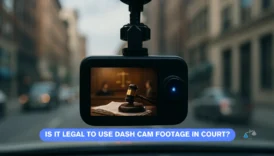Can a Verbal Agreement Be Legally Binding?

Many people assume that only written contracts are enforceable in court, but that isn’t always true. In fact, verbal agreements can be legally binding under certain circumstances. The challenge lies not in whether the law recognizes them, but in whether you can prove the terms and conditions if a dispute arises. From handshake deals in business to casual promises between friends, verbal agreements play a role in everyday life. Understanding when they hold legal weight—and when they don’t—is crucial to protecting your rights.
What Is a Verbal Agreement?
A verbal agreement, also known as an oral contract, is any type of promise or arrangement made between two or more parties without being put into writing. Instead of a signed document, the agreement relies on spoken words, gestures, or even implied conduct. People make verbal agreements every day without realizing it—from agreeing to pay a neighbor for mowing the lawn to promising a friend reimbursement for a shared purchase.
Core Elements of a Verbal Agreement
For an agreement to rise to the level of a legally recognized contract, even when verbal, it must meet the same fundamental elements as a written one:
- Offer – One party proposes terms (e.g., “I’ll sell you my bike for $200”).
- Acceptance – The other party agrees to those terms (“Deal, I’ll take it”).
- Consideration – Something of value is exchanged (money, services, goods, or promises).
- Mutual Intent – Both sides understand that they are entering a binding arrangement.
- Capacity – Each party must have the legal ability to contract (e.g., being of age, sound mind).
If these elements are present, the law may treat the verbal promise as a valid contract.
Everyday Examples
- Service Arrangements: You agree to pay a handyman $100 to fix a leaky faucet.
- Sales of Goods: Buying furniture at a garage sale with a verbal price agreement.
- Short-Term Rentals: Informal sublet agreements without a written lease.
These agreements can be—and often are—legally enforceable, provided both parties fulfill the contract requirements.
Why They’re Common
- Convenience: It’s faster and easier to shake hands than draft a written contract.
- Trust: Friends, family, or small business partners often rely on trust rather than formal paperwork.
- Informality: Many everyday transactions feel too minor to warrant detailed written agreements.
The Problem with Verbal Agreements
While verbal agreements can form valid contracts, proving them is much harder than with written ones. Without a document to reference, disputes come down to “he said, she said” arguments, forcing courts to evaluate credibility, witness testimony, and surrounding circumstances.
Key takeaway: A verbal agreement is essentially an oral contract that can be enforceable if it contains the basic elements of a contract. The real challenge is not whether it is legal, but whether it can be proven in the event of a dispute.
Are Verbal Contracts Legally Binding? The General Rule
The short answer is yes—verbal contracts can be legally binding. Courts generally recognize oral agreements as valid if they include the same essential elements required for written contracts: offer, acceptance, consideration, mutual intent, and capacity. However, the fact that a verbal agreement can be binding doesn’t mean it’s always enforceable.
The Legal Principle
- In contract law, the form (written or verbal) is often less important than the substance (whether the necessary elements are present).
- If two people make a promise supported by something of value, the law may treat it as a valid and enforceable contract—even if it’s never written down.
- Example: You agree to pay your neighbor $200 to paint your fence, and they agree to do it. If they fail to perform, you may have the right to sue, even without a written contract.
Why Courts Accept Verbal Agreements
- The legal system recognizes that not every deal in life is written down.
- Everyday transactions—buying services, sharing expenses, small-scale sales—often rely on trust and conversation.
- Refusing to enforce oral contracts altogether would create unfairness and encourage dishonest behavior.
The Key Limitation
The main challenge is proof. A written contract provides a paper trail, while a verbal contract often depends on:
- Witness testimony.
- Texts, emails, or messages that reference the agreement.
- Evidence of partial performance (one party started fulfilling the promise).
Without these, a court may find it difficult to determine exactly what was agreed upon.
Practical Example
Imagine you hire a landscaper with a handshake agreement to mow your lawn for the summer for $500. You pay upfront, but they never show up. Even without a written contract, a court could enforce your claim, especially if you have a receipt, bank transfer, or witnesses who heard the deal.
Key takeaway: By default, verbal contracts are legally binding if they contain the essential elements of a contract. The real risk isn’t legality—it’s the difficulty of proving the terms if a dispute arises.
The Role of the Statute of Frauds: When a Writing Is Required
While many verbal agreements are enforceable, contract law also recognizes that some deals are simply too important or too risky to rely on memory alone. This is where the Statute of Frauds comes in. The Statute of Frauds is a legal doctrine requiring certain types of contracts to be in writing in order to be enforceable.
Why the Statute of Frauds Exists
- To prevent fraud and misunderstandings in serious or long-term transactions.
- To create a clear record of obligations when the stakes are high.
- To ensure both parties think carefully before entering into significant agreements.
Common Types of Agreements That Must Be in Writing
- Contracts for the Sale of Land or Real Estate
- Buying, selling, or transferring property must be in writing.
- Example: A handshake deal to sell a house for $200,000 would not be enforceable without a written contract.
- Contracts That Cannot Be Performed Within One Year
- If the agreement by its terms will take longer than one year to complete, it must be in writing.
- Example: A two-year employment agreement cannot be enforced if it’s only verbal.
- Promises to Pay Someone Else’s Debt
- Known as suretyship agreements.
- Example: “I’ll cover my brother’s loan if he can’t pay” must be in writing.
- Contracts for the Sale of Goods Over a Certain Value
- Under the Uniform Commercial Code (UCC) in the U.S., sales of goods valued at $500 or more generally require a written contract.
- Marriage-Related Contracts
- Agreements made in consideration of marriage (like prenuptial agreements) must be in writing.
Exceptions to the Rule
Courts sometimes enforce oral agreements that technically fall under the Statute of Frauds if there is strong evidence of partial performance or reliance. For instance:
- If a buyer pays part of the purchase price for land and takes possession, a court may uphold the deal even without a written contract.
- If one party has reasonably relied on the oral promise to their detriment, courts may prevent the other side from backing out.
Key takeaway:
While many verbal agreements are binding, the Statute of Frauds creates important exceptions. For contracts involving land, long-term performance, major goods sales, or debt guarantees, you’ll need a written agreement for legal enforcement.
Examples of Enforceable Verbal Agreements
Even though written contracts are easier to prove, many verbal agreements are still legally enforceable in everyday life. Courts recognize that not every deal is formalized with paperwork, especially for smaller transactions or short-term arrangements. Below are some common examples of oral agreements that can hold up in court.
1. Service Agreements
- Example: You agree to pay a handyman $150 to repair a broken window.
- If the handyman accepts, performs the work, and you don’t pay, they can sue for the agreed amount—even without a written contract.
2. Short-Term Employment Arrangements
- Example: You verbally hire a babysitter for the evening and promise $60.
- The babysitter provides the service, but you refuse to pay. They can enforce the agreement in small claims court.
- Since the work is completed within a day (less than a year), it doesn’t fall under the Statute of Frauds.
3. Small Sales of Goods
- Example: Buying a used bicycle from a neighbor for $200.
- If you hand over the money and the neighbor refuses to deliver the bike, you may sue to enforce the deal.
- Because the price is under $500, the Uniform Commercial Code (UCC) writing requirement doesn’t apply.
4. Rental or Lease Agreements Under One Year
- Example: You rent a garage from a neighbor for six months at $200 per month, agreed verbally.
- Most states allow short-term leases (under one year) to be enforced orally.
5. Loaning or Borrowing Small Amounts of Money
- Example: You lend a friend $100 with the verbal promise that they’ll repay you in two weeks.
- If they don’t pay, you can bring a claim for repayment.
6. Day-to-Day Transactions
- Buying food from a food stand.
- Hiring a taxi driver.
- Paying for yard work or odd jobs.
All of these are verbal contracts that are performed immediately and enforceable as such.
Why These Agreements Hold Up
- They meet the basic requirements of a contract: offer, acceptance, and consideration.
- They fall outside the types of agreements the Statute of Frauds requires in writing.
- Courts prefer fairness: if one party has benefited from the agreement, the law often prevents the other from walking away without consequence.
Key takeaway: Many everyday promises are enforceable verbal agreements. If the transaction is short-term, low-value, or already partially performed, courts are likely to uphold it, even without written proof.
Common Problems with Verbal Contracts (Proof and Credibility)
While verbal agreements can be enforceable, they come with serious challenges. Unlike written contracts, which create a clear record of terms and obligations, oral agreements rely heavily on memory, credibility, and circumstantial evidence. This makes disputes over verbal contracts more difficult to win in court.
1. Lack of Written Proof
- The biggest problem with verbal contracts is that nothing is on paper.
- Without documentation, it becomes a matter of one person’s word against the other’s.
- Courts are reluctant to enforce contracts where the terms are vague or impossible to verify.
2. Unclear or Incomplete Terms
- People often make handshake deals without discussing all the details.
- Example: You verbally agree to pay a painter for a job, but you don’t specify the type of paint, timeline, or cleanup. Later, disagreements arise about what was expected.
- Courts may find such agreements too indefinite to enforce.
3. Fading Memory
- Human memory is unreliable, especially over months or years.
- Parties may genuinely remember conversations differently, leading to conflicting testimony.
- Without notes, emails, or witnesses, it becomes extremely difficult to establish the truth.
4. No Witnesses
- If only the two parties were present, there may be no independent verification.
- Witnesses can strengthen a verbal contract, but they are not always available.
5. Difficulty Proving Consideration
- Consideration (the exchange of value) is a necessary element of contracts.
- Without written records, it can be hard to show that payment was promised, agreed upon, or actually delivered.
6. Credibility Issues in Court
- Judges must weigh credibility when parties give conflicting accounts.
- If the opposing party seems more organized, consistent, or reliable, the judge may side with them—even if your version is true.
- This puts self-represented litigants at a disadvantage if they don’t prepare thoroughly.
7. Higher Risk of Fraud or Dishonesty
- Verbal agreements create openings for one party to deny, change, or exaggerate terms.
- Written contracts, by contrast, provide a fixed record that cannot easily be altered.
Key takeaway:
The main problem with verbal contracts isn’t whether they’re legal—it’s whether you can prove what was said. Courts need evidence, and without documents or witnesses, credibility battles often determine the outcome.
How Courts Evaluate Verbal Agreements: Evidence and Witnesses
When a verbal agreement ends up in court, the judge’s biggest challenge is deciding what actually happened. Since there is no written contract to review, courts rely on a mix of evidence, testimony, and context to determine whether an enforceable contract exists and what its terms were.
Types of Evidence Courts Look For
- Partial Performance
- If one party has already started or completed their part of the deal, that action supports the existence of an agreement.
- Example: You hire a contractor verbally, and they begin work. This performance is strong evidence of a contract.
- Payment Records
- Bank transfers, receipts, Venmo/Cash App logs, or checks can confirm that money changed hands.
- Even if no formal invoice exists, proof of payment helps verify the agreement.
- Written Communication
- Emails, text messages, or notes that reference the agreement can act as supporting evidence.
- Example: A text saying, “Thanks again for agreeing to pay $500 for the roof repair” strengthens your claim.
- Conduct of the Parties
- Courts examine how both sides behaved after the agreement.
- Did one side provide goods or services? Did the other accept or benefit from them?
- Industry Norms
- Judges sometimes consider standard practices in certain industries.
- For instance, in construction or freelance work, oral agreements for smaller projects are common and often respected.
The Role of Witnesses
- Witnesses who heard the agreement or observed its execution can be crucial.
- Example: A friend who overheard you agreeing to rent a garage for $200 a month may confirm the terms in court.
- Without witnesses, the case often comes down to credibility between the two parties.
Credibility Assessment
- Judges evaluate consistency, demeanor, and detail in each party’s testimony.
- If one side provides a clear timeline supported by evidence (texts, payments, or partial performance) while the other side is vague, the court is more likely to believe the detailed account.
Burden of Proof
- In civil cases, the standard is usually “preponderance of the evidence”—meaning it must be more likely than not that the contract existed as claimed.
- This is a lower standard than criminal cases, but still requires persuasive evidence.
Key takeaway:
Courts don’t automatically reject verbal agreements, but they need supporting evidence and credible testimony to enforce them. The stronger your documentation, witnesses, and proof of performance, the higher your chance of success.
Partial Performance and Reliance: Exceptions That Strengthen Oral Contracts
Even when a verbal agreement falls into an area that normally requires a written contract, courts sometimes still enforce it under the doctrines of partial performance and reliance. These exceptions exist to prevent unfair outcomes when one party has clearly acted on the agreement to their detriment.
Partial Performance
- Definition: When one side has already begun carrying out their part of the deal, the court may see this as proof that a contract existed.
- Examples:
- A tenant moves into a rental property after a handshake lease and pays rent for several months. Even without a written lease, the landlord cannot simply deny the agreement.
- A contractor begins building an addition to a house after an oral promise of payment. The visible work supports the existence of a contract.
- Reasoning: Courts want to prevent one party from unfairly benefiting from the other’s actions while denying the agreement.
Reliance (Promissory Estoppel)
- Definition: If one party reasonably relies on a verbal promise and suffers harm as a result, courts may enforce the agreement under promissory estoppel.
- Elements of Reliance:
- A clear promise was made.
- The other party reasonably relied on that promise.
- They took action or refrained from action because of it.
- They suffered a loss when the promise was broken.
- Examples:
- A business owner verbally offers you a one-year job, so you quit your current employment. If the offer is revoked, you may have grounds to enforce the promise.
- A friend promises to transfer land orally, and you invest in improving the property. A court may prevent them from backing out.
Why These Exceptions Matter
- The Statute of Frauds requires certain contracts to be written, but exceptions ensure fairness when strict enforcement would cause injustice.
- Courts apply these doctrines cautiously, requiring strong proof of actions taken or losses suffered.
Limits
- Not every act counts as partial performance. Paying a small deposit, for example, may not be enough in a land sale without other actions like moving in or making improvements.
- Reliance must be reasonable. If no reasonable person would have relied on the promise, courts may not enforce it.
Key takeaway:
Even when the law generally requires written contracts, partial performance and reliance can make a verbal agreement enforceable. These exceptions exist to prevent one party from exploiting another’s trust and actions.
Business vs. Personal Context: Do Verbal Agreements Work Differently?
Verbal agreements are part of both business and personal life, but the way courts view and enforce them can differ depending on the context. A handshake between friends may be treated differently than a handshake between two business partners. Understanding these distinctions helps you know when a verbal agreement might be reliable and when it’s risky.
Verbal Agreements in Business
- Common but Risky
- In fast-moving industries, verbal agreements often happen to secure quick deals.
- Example: A vendor agrees at a trade show to deliver products at a set price.
- While enforceable in theory, proving the specific terms later can be difficult without written confirmation.
- Professional Expectations
- Businesses are generally expected to document contracts in writing, especially when money, inventory, or services are involved.
- Courts may look less favorably on companies that rely on oral promises when written contracts are standard.
- Legal Safeguards
- The Uniform Commercial Code (UCC) in the U.S. requires that contracts for goods over $500 be in writing, making oral business deals over that amount unenforceable in most cases.
Verbal Agreements in Personal Life
- More Informal
- Friends and family often rely on trust instead of paperwork.
- Example: You promise to pay your neighbor $50 to watch your dog for the weekend.
- Greater Risk of Conflict
- Personal relationships can sour, leading to disputes that are harder to resolve because nothing is documented.
- Courts sometimes hesitate to get involved in casual personal promises unless clear evidence of intent to form a contract exists.
Differences in Enforcement
- Business Context
- Courts apply stricter scrutiny, expecting professional parties to know better and put agreements in writing.
- Failure to do so may weaken credibility.
- Personal Context
- Courts may still enforce oral agreements if they involve money, services, or goods, especially if one party has already performed.
- But “casual promises” (like “I’ll help you move next weekend”) are unlikely to be treated as contracts.
Practical Advice
- In business, always document agreements in writing, even if it’s just an email confirmation.
- In personal matters, written records may feel unnecessary, but a quick text or message summarizing the deal can prevent misunderstandings later.
Verbal agreements can be enforceable in both business and personal contexts, but courts expect more formality in business transactions. If money, property, or long-term obligations are involved, put it in writing to protect both sides.
Advantages and Disadvantages of Verbal Agreements
Verbal agreements have existed for centuries, long before written contracts became the norm. Even today, many people rely on a handshake or spoken promise rather than formal paperwork. While these arrangements can work, they come with both strengths and weaknesses.
Advantages of Verbal Agreements
- Simplicity and Convenience
- No paperwork or formal drafting required.
- Useful for quick, everyday transactions.
- Example: Agreeing on a one-time service like mowing a lawn or babysitting.
- Speed
- Agreements can be made on the spot without waiting for documents to be prepared.
- This flexibility can be helpful in time-sensitive situations, such as a business vendor agreeing to provide goods at a trade show.
- Trust and Informality
- In personal relationships, written contracts may feel unnecessary or overly formal.
- Verbal agreements allow parties to rely on goodwill and personal trust.
- Legal Recognition
- Courts do recognize many verbal agreements as valid, provided the essential elements of a contract are present.
Disadvantages of Verbal Agreements
- Proof Problems
- The biggest drawback: there is no written record.
- Disputes often turn into “he said, she said” situations that are difficult to resolve.
- Unclear Terms
- Important details (payment dates, delivery times, responsibilities) are easily forgotten or misunderstood.
- Example: You verbally agree to “fix the roof” but never specify whether cleanup is included.
- Higher Risk of Disputes
- Without clarity, disagreements are more likely.
- Courts may refuse to enforce agreements that seem vague or incomplete.
- Statute of Frauds Limitations
- Some agreements (e.g., real estate sales, contracts over one year, large goods transactions) must be in writing by law.
- Relying on a verbal promise in these cases can leave you without legal protection.
- Credibility Issues in Court
- Judges must rely on testimony and behavior rather than documents.
- The more confident or consistent party may appear more believable, regardless of the truth.
Balanced Perspective
- Verbal agreements can work well for short-term, low-value, or routine matters.
- For high-stakes or long-term commitments, the disadvantages outweigh the convenience, making written contracts far safer.
Key takeaway:
The main advantage of verbal agreements is convenience, while the main disadvantage is the difficulty of proving and enforcing them. The risk grows as the stakes increase, which is why significant deals should always be put in writing.
How to Protect Yourself When Making a Verbal Agreement
While verbal agreements can be legally binding, the biggest challenge is proving what was actually agreed upon if a dispute arises. Since courts rely on evidence and credibility, you should take steps to protect yourself whenever you make an oral deal.
1. Follow Up in Writing
- After reaching a verbal agreement, send a quick confirmation email, text message, or letter.
- Example: “Just confirming that you’ll repair my fence this weekend for $300 as we agreed.”
- This creates a timestamped record that strengthens your position if the other party later denies the terms.
2. Use Witnesses
- If possible, make the agreement in front of a third party who can testify to what was said.
- Example: A friend hears both parties agree on the price and scope of work.
- Even one witness can help establish credibility.
3. Keep Payment Records
- Always use traceable payment methods such as checks, bank transfers, or mobile payment apps.
- Cash payments without receipts are much harder to prove in court.
- Saving receipts and bank statements creates a paper trail supporting the verbal agreement.
4. Document Performance
- Take photos, videos, or notes showing that work began or money exchanged hands.
- Example: If you hired someone verbally to paint a room, photographs of the work in progress serve as evidence.
5. Clarify Essential Terms
- Before shaking hands, discuss and agree on key details:
- Price or payment method.
- Timeline or deadline.
- Scope of services or goods.
- Courts often refuse to enforce contracts that are too vague.
6. Know the Legal Limits
- Remember that some contracts (real estate, agreements over one year, sales of goods over $500, promises to pay someone else’s debt) must be in writing under the Statute of Frauds.
- Don’t rely on verbal agreements for high-value or long-term obligations.
7. Consider Partial Writing
- Even if you don’t draft a full contract, simple written notes signed by both parties can dramatically reduce risk.
- Example: A handwritten note stating “Agreed: payment of $200 for two weeks of pet-sitting” can be legally powerful.
You can’t eliminate all risks with verbal agreements, but by creating supporting evidence—through messages, witnesses, receipts, and documentation—you improve your chances of enforcing the deal if it ends up in court.
When to Put It in Writing Instead
While verbal agreements can work in certain situations, there are times when relying on spoken promises is far too risky. Written contracts offer clarity, legal strength, and enforceability that oral agreements simply cannot match. Knowing when to shift from a handshake to a signed document can protect you from costly disputes.
Situations That Require Writing by Law
Under the Statute of Frauds, some agreements must be in writing to be enforceable:
- Real Estate Transactions → Buying, selling, or leasing land for more than one year.
- Contracts That Last More Than One Year → Any agreement that cannot be fully performed within 12 months.
- Large-Value Goods Sales → In the U.S., sales of goods valued at $500 or more (per the Uniform Commercial Code).
- Debt Guarantees → Promises to pay someone else’s debt.
- Marriage-Related Agreements → Prenuptial or postnuptial arrangements.
If you rely on a verbal promise in these categories, you may find yourself with no enforceable contract.
Situations Where Writing Is Strongly Recommended
Even when the law doesn’t require it, a written contract is wise whenever:
- Significant Money Is Involved → Loans, investments, or business services.
- Business Relationships → Partnerships, vendor agreements, or employment contracts.
- Long-Term Commitments → Rental agreements, service contracts, or installment plans.
- Complex Terms → When multiple details (deadlines, payment schedules, performance standards) need to be clear.
Benefits of Putting It in Writing
- Clarity: Everyone knows the exact terms.
- Proof: A signed document avoids “he said, she said” disputes.
- Flexibility: Written contracts can include remedies for breach, dispute resolution methods, and other protections.
- Professionalism: Especially in business, written contracts demonstrate seriousness and build trust.
Practical Example
- Verbal deal: You hire a contractor to remodel your kitchen for $20,000. Later, you disagree about the scope of work and payment schedule. Without a written contract, the dispute may be nearly impossible to resolve fairly.
- Written deal: A signed contract specifies the cost, payment milestones, materials, and deadlines. If the contractor fails to deliver, you have a clear basis for legal action.
If the agreement involves high stakes, long timeframes, or legal categories requiring writing, do not rely on a verbal promise. Putting it in writing ensures enforceability, reduces risk, and protects both parties.
Frequently Asked Questions About Verbal Agreements
Verbal agreements raise many practical concerns because they live in the gray area between legally binding contracts and unenforceable promises. Below are some of the most common questions people ask, with straightforward answers.
1. Are verbal agreements always legally binding?
Not always. They are binding if they meet the requirements of a contract (offer, acceptance, consideration, mutual intent, and capacity). But agreements that fall under the Statute of Frauds usually require writing.
2. Can I sue someone over a verbal agreement?
Yes, but you’ll need to prove the agreement existed and what its terms were. Courts look at evidence like payment records, text messages, witnesses, or partial performance.
3. What if the other party denies the agreement?
This is the main risk. Without supporting evidence, it may turn into a credibility contest where the judge must decide which side is more believable.
4. Do small claims courts accept verbal contracts?
Yes. Small claims courts often deal with disputes based on handshake agreements, especially for amounts under a few thousand dollars.
5. How do I strengthen a verbal agreement?
Follow up with a written confirmation (email, text, or receipt), keep records of payments, and involve witnesses whenever possible.
6. Can I enforce a handshake deal for real estate?
No. Real estate contracts almost always must be in writing under the Statute of Frauds.
7. What happens if part of the verbal contract was performed?
Partial performance (like paying part of the price or starting the work) can make courts more willing to enforce the agreement.
8. Can businesses rely on verbal agreements?
They can, but it’s risky. Courts expect businesses to document deals in writing, especially for high-value transactions.
9. Are text messages enough to make a verbal agreement enforceable?
Yes, texts and emails can serve as partial written proof of the terms, strengthening an otherwise verbal contract.
10. Should I ever rely only on a verbal contract?
Only for simple, low-value, short-term arrangements. For anything involving significant money, property, or long-term obligations, a written contract is far safer.
Key takeaway:
Verbal agreements are enforceable in many cases, but they’re only as strong as the evidence you can provide. The more documentation and witnesses you have, the more likely a court will uphold them.
Key Takeaways and Practical Guidance (Not Legal Advice)
Verbal agreements are a natural part of daily life, and the law does recognize many of them as legally binding. However, the real challenge lies in proving the terms if a disagreement arises. While handshake deals and oral promises can be enforceable, they are rarely as reliable as written contracts.
Key Takeaways
- Verbal contracts can be binding if they contain the essential elements of a contract: offer, acceptance, consideration, mutual intent, and capacity.
- The Statute of Frauds requires certain agreements—such as real estate transactions, long-term contracts, large sales of goods, and debt guarantees—to be in writing.
- Courts often look for supporting evidence like payment records, text messages, witness testimony, or partial performance to enforce a verbal contract.
- Verbal agreements are more commonly enforced in everyday, low-value, short-term situations (e.g., paying for services, small loans, rental agreements under a year).
- The biggest risk with verbal agreements is lack of proof, which can turn disputes into credibility battles.
Practical Guidance
- Protect yourself by following up verbal agreements with emails, texts, or receipts.
- Use witnesses or documented payments to strengthen credibility.
- Know the limits: If the deal involves real estate, long timelines, or significant money, put it in writing.
- Stay realistic: Verbal contracts may work for small, informal promises, but written agreements are safer for serious business or personal commitments.
- Seek professional help: If the stakes are high or the terms are complex, consult a lawyer—even if only for limited advice.
Final Note:
Verbal agreements are part of how people live and do business, but they leave too much room for misunderstanding. Whenever possible, get it in writing. This guide is for informational purposes only and is not legal advice. For specific concerns, always consult a qualified attorney.






